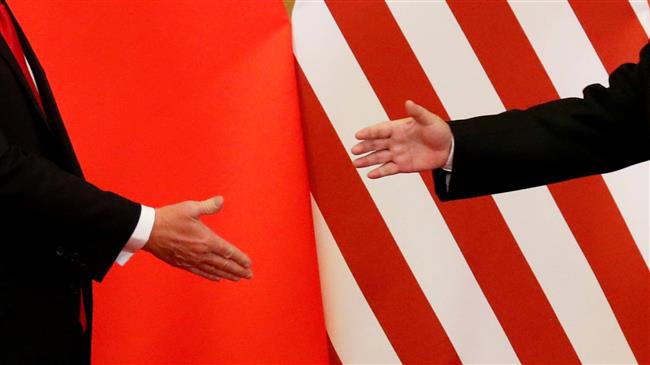US-China relations are at a crossroad under Biden administration: Academic
The US-China relations are at a crossroad under the administration of new President Joe Biden, says Professor Dennis Etler, an American political analyst who has a decades-long interest in international affairs.
Etler, former professor of Anthropology at Cabrillo College in Aptos, California, made the remarks in an interview with Press TV on Thursday.
China has denounced the US sending of yet another warship through the sensitive Taiwan Strait, saying the new US administration was using an old trick of “mixed manipulation” of the situation to deliberately create tensions in the region.
For the first time under the administration of new US President Joe Biden, a US navy warship passed on Thursday through the sensitive waterway, which separates self-ruled Taiwan from mainland China.
The US navy said the guided missile destroyer USS John S. McCain had "conducted a routine Taiwan Strait transit” in what it claimed to be “in accordance with international law.”
Taiwan's Defense Ministry also described the move as a "normal" mission.
The Eastern Theater Command of China's People's Liberation Army, however, said in a statement that Beijing is “resolutely opposed” to such military activities in the region.
“The new Biden administration is stuck between a rock and a hard place vis-à-vis relations with China. Trump's hardline towards Beijing was counterproductive and didn't produce the promised results. The trade war backfired and the inept response of the Trump administration to the challenges of the COVID-19 pandemic, coupled with its effective containment by Beijing, has put China in a much stronger position than its rival,” Professor Etler said.
“While the US economy continues to flounder, China's has returned to normal and the country is back on an upward trajectory. The EU, still enmeshed in the pandemic and the resulting economic downturn, sees a recovering China as a far more attractive market for its goods and investment than the struggling US,” he stated.
“Washington is thus finding few takers for its ‘Alliance of Values,’ meant to confront China with a united front of ‘democratic nations’ out to contain ‘authoritarianism.’ Biden and his foreign policy and national security teams are, however, caught in a time warp and still see themselves as leading a coalition of the willing in their fight to maintain US global hegemony, the main threat now being identified as China,” he noted.
“In many respects, Biden has inherited Trump's hardline China policy, particularly when it comes to military confrontations. Now that the Democrats have control of all the levers of power in Washington they have to show that they are tough on China in order to defuse any criticism from their right flank. In this regard the constant barrage of anti-China propaganda unleashed during Trump's tenure in office has so poisoned the well that it will take time for Sinophobic US public opinion to change. Thus Biden is constrained in altering a get-tough policy towards the PRC,” he said.
“One way of demonstrating opposition to China is to engage in a bout of gunboat diplomacy by showing the flag in the Taiwan Strait and the South China Sea. But, Biden has simultaneously reinstated US adherence to the "one-China policy" and made other overtures to Beijing. At present, Biden has little leeway in his dealings with China. In the long-term, however, it's in the economic interests of the US to seek an accommodation with China and expend its energy in getting its own house in order before it goes off on some ill-fated and doomed foreign adventures,” the commentator concluded.
Iran’s engineering feat beneath Persian Gulf for gas supply
Israeli military confirms soldier’s death in apparent suicide case
UN chief slams Israel for blocking utilities to UNRWA in Gaza
Israel launches airstrikes, artillery fire across Gaza on first day of 2026
VIDEO | Press TV's news headlines
Millions of Afghans face food insecurity
Israel killed 7,488 Palestinian students, educational staff during 2025
VIDEO | Festive celebrations held across China to welcome new year












 This makes it easy to access the Press TV website
This makes it easy to access the Press TV website